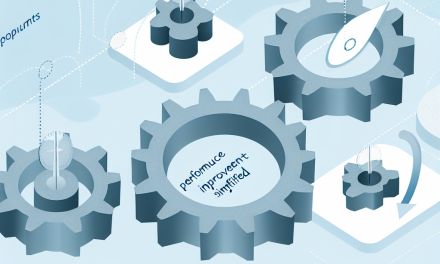Table of Contents
Why Proactive HR is the Way Forward: 3 Reasons to Ditch Reactive Methods
Introduction
Proactive HR is the way forward for organizations looking to stay ahead in today’s dynamic business environment. By shifting from reactive methods to proactive approaches, HR departments can effectively anticipate and address potential issues before they escalate. This not only helps in maintaining a positive work culture but also contributes to the overall success of the organization. In this article, we will explore three key reasons why organizations should ditch reactive HR methods and embrace a proactive approach.
The Benefits of Implementing Proactive HR Strategies

In today’s fast-paced and ever-changing business landscape, human resources (HR) departments play a crucial role in ensuring the success and growth of organizations. Traditionally, HR has been seen as a reactive function, responding to issues as they arise. However, there is a growing recognition that proactive HR strategies are the way forward. By taking a proactive approach, HR departments can anticipate and address potential challenges before they become major problems. In this article, we will explore three key benefits of implementing proactive HR strategies.
Firstly, proactive HR strategies can help organizations attract and retain top talent. In a competitive job market, companies need to go above and beyond to attract and retain the best employees. By taking a proactive approach, HR departments can identify the skills and qualities that are most important for success in their organization and actively seek out candidates who possess these attributes. This can involve building relationships with universities and professional organizations, attending job fairs, and utilizing social media platforms to showcase the company’s culture and values. By being proactive in their recruitment efforts, HR departments can ensure that they have a pool of qualified candidates to choose from when positions become available, reducing the time and resources spent on recruitment.
Secondly, proactive HR strategies can help organizations identify and address potential issues before they escalate. By regularly conducting employee surveys, HR departments can gather valuable feedback on employee satisfaction, engagement, and overall well-being. This information can help identify areas of improvement and allow HR to take proactive steps to address any concerns. For example, if the survey reveals that employees are feeling overwhelmed and stressed, HR can implement wellness programs or flexible work arrangements to promote work-life balance. By addressing these issues proactively, organizations can prevent them from escalating and negatively impacting employee morale and productivity.
Lastly, proactive HR strategies can help organizations stay ahead of changing labor laws and regulations. Employment laws are constantly evolving, and organizations need to ensure that they are compliant to avoid legal issues and penalties. By staying informed about changes in labor laws and regulations, HR departments can proactively update policies and procedures to ensure compliance. This can involve attending seminars and workshops, subscribing to industry newsletters, and networking with other HR professionals. By taking a proactive approach to compliance, organizations can avoid costly legal battles and maintain a positive reputation.
In conclusion, proactive HR strategies offer numerous benefits for organizations. By taking a proactive approach to recruitment, HR departments can attract and retain top talent. By proactively addressing employee concerns, organizations can create a positive work environment and improve employee satisfaction and productivity. Finally, by staying ahead of changing labor laws and regulations, organizations can avoid legal issues and maintain compliance. In today’s competitive business landscape, proactive HR is the way forward. Organizations that embrace proactive HR strategies will be better equipped to navigate challenges and achieve long-term success.
How Proactive HR Can Improve Employee Engagement and Retention
In today’s fast-paced and ever-changing business landscape, human resources (HR) departments play a crucial role in ensuring the success and growth of organizations. Traditionally, HR has been seen as a reactive function, responding to issues as they arise. However, there is a growing recognition that proactive HR is the way forward. By taking a proactive approach, HR can not only address problems before they escalate but also improve employee engagement and retention. In this article, we will explore three reasons why organizations should ditch reactive methods and embrace proactive HR.
Firstly, proactive HR can significantly improve employee engagement. Employee engagement refers to the level of commitment and enthusiasm employees have towards their work and the organization. Engaged employees are more productive, innovative, and loyal. Proactive HR practices, such as regular check-ins, career development programs, and recognition initiatives, can help create a positive work environment that fosters engagement. By actively seeking feedback and addressing concerns, proactive HR can ensure that employees feel valued and supported, leading to higher levels of engagement.
Secondly, proactive HR can enhance employee retention. Employee turnover can be costly and disruptive to organizations. According to a study by the Society for Human Resource Management, it can cost up to 50-60% of an employee’s annual salary to replace them. Proactive HR can help prevent turnover by identifying and addressing potential issues before they lead to employee dissatisfaction. By conducting stay interviews, for example, HR can gain insights into employees’ needs and concerns, allowing them to take proactive measures to improve job satisfaction. Additionally, proactive HR can develop retention strategies, such as career development plans and flexible work arrangements, that cater to employees’ individual needs and aspirations.
Lastly, proactive HR can contribute to a positive organizational culture. Organizational culture refers to the shared values, beliefs, and behaviors that shape the work environment. A strong and positive culture can attract top talent, improve teamwork, and drive organizational success. Proactive HR can play a vital role in shaping and nurturing the desired culture. By actively promoting diversity and inclusion, providing opportunities for employee growth and development, and fostering open communication, proactive HR can create a culture that values and respects its employees. This, in turn, leads to higher levels of job satisfaction, engagement, and productivity.
In conclusion, proactive HR is the way forward for organizations looking to improve employee engagement and retention. By taking a proactive approach, HR can create a positive work environment, address issues before they escalate, and foster a strong organizational culture. The benefits of proactive HR are numerous, including increased employee engagement, enhanced retention rates, and a positive organizational culture. As organizations continue to navigate the challenges of the modern business landscape, proactive HR is a crucial tool for success. By investing in proactive HR practices, organizations can create a workplace where employees thrive, leading to improved performance and long-term success.
The Role of Proactive HR in Mitigating Workplace Conflicts
In today’s fast-paced and ever-changing business landscape, it is crucial for organizations to have a proactive approach to human resources (HR). Reactive methods, where HR professionals only step in when conflicts arise, are no longer sufficient. Instead, proactive HR is the way forward. By taking a proactive approach, HR professionals can play a vital role in mitigating workplace conflicts and creating a harmonious work environment.
One of the key roles of proactive HR is to identify potential conflicts before they escalate. By actively monitoring the workplace and staying attuned to the dynamics between employees, HR professionals can spot early warning signs of conflicts. This could be through regular check-ins with employees, conducting surveys or focus groups, or simply being present and observant in the workplace. By identifying conflicts at an early stage, HR professionals can intervene and address the issues before they spiral out of control.
Another important aspect of proactive HR is the implementation of preventive measures. Rather than waiting for conflicts to occur and then dealing with the aftermath, proactive HR focuses on preventing conflicts from happening in the first place. This can be achieved through various means, such as providing conflict resolution training to employees, promoting open communication and collaboration, and establishing clear policies and procedures for addressing conflicts. By proactively addressing potential sources of conflicts and equipping employees with the necessary skills to handle disagreements, HR professionals can significantly reduce the likelihood of conflicts arising.
Furthermore, proactive HR plays a crucial role in fostering a positive work culture and promoting employee well-being. By creating a supportive and inclusive work environment, HR professionals can help prevent conflicts from arising in the first place. This can be achieved through initiatives such as employee engagement programs, wellness programs, and diversity and inclusion initiatives. When employees feel valued, supported, and respected, they are more likely to work collaboratively and resolve conflicts amicably. Proactive HR recognizes the importance of investing in the well-being of employees and understands that a healthy work culture is essential for the overall success of the organization.
In conclusion, proactive HR is the way forward when it comes to mitigating workplace conflicts. By taking a proactive approach, HR professionals can identify potential conflicts before they escalate, implement preventive measures, and foster a positive work culture. This not only helps in reducing conflicts but also creates a harmonious work environment where employees can thrive. Organizations that embrace proactive HR are more likely to experience higher employee satisfaction, productivity, and overall success. It is time to ditch reactive methods and embrace the proactive approach to HR.
Proactive HR: A Key Driver for Organizational Success
Why Proactive HR is the Way Forward: 3 Reasons to Ditch Reactive Methods
In today’s fast-paced and ever-changing business landscape, organizations need to be agile and adaptable to stay ahead of the competition. One crucial aspect of achieving this is having a proactive human resources (HR) department. Proactive HR is a key driver for organizational success, as it focuses on anticipating and addressing potential issues before they become problems. In contrast, reactive HR methods only address issues after they have occurred, often resulting in costly and time-consuming damage control. This article will explore three reasons why organizations should ditch reactive HR methods and embrace a proactive approach.
Firstly, proactive HR allows organizations to be proactive in identifying and addressing potential talent gaps. In a rapidly evolving business environment, having the right people with the right skills is essential for success. By taking a proactive approach, HR can anticipate future talent needs and develop strategies to attract, develop, and retain top talent. This could involve implementing training programs, succession planning, or even partnering with educational institutions to ensure a pipeline of skilled candidates. By being proactive in talent management, organizations can avoid the costly and disruptive process of scrambling to fill talent gaps when they arise.
Secondly, proactive HR helps to create a positive and inclusive work culture. A proactive HR department actively seeks to understand the needs and concerns of employees and takes steps to address them before they become major issues. This could involve conducting regular employee surveys, implementing flexible work arrangements, or providing resources for mental health and well-being. By being proactive in addressing employee needs, HR can foster a positive work environment where employees feel valued and supported. This, in turn, leads to higher employee engagement, productivity, and retention rates. In contrast, reactive HR methods often result in a disengaged workforce and a negative work culture, which can have detrimental effects on organizational success.
Lastly, proactive HR enables organizations to stay ahead of compliance and legal issues. Laws and regulations governing the workplace are constantly evolving, and organizations must ensure they are in compliance to avoid legal consequences. A proactive HR department stays up-to-date with changes in legislation and takes proactive steps to ensure compliance. This could involve conducting regular audits, implementing training programs, or seeking legal counsel when needed. By being proactive in compliance, organizations can avoid costly fines, lawsuits, and damage to their reputation. Reactive HR methods, on the other hand, often result in organizations being caught off guard by legal issues, leading to significant financial and reputational damage.
In conclusion, proactive HR is the way forward for organizations seeking to achieve success in today’s dynamic business environment. By being proactive in talent management, organizations can ensure they have the right people with the right skills to drive success. Proactive HR also helps to create a positive work culture, leading to higher employee engagement and retention rates. Additionally, proactive HR enables organizations to stay ahead of compliance and legal issues, avoiding costly fines and damage to their reputation. It is clear that ditching reactive HR methods in favor of a proactive approach is essential for organizations that want to thrive in the modern business landscape.
Q&A
1. What is proactive HR?
Proactive HR refers to an approach where HR professionals anticipate and address potential issues before they arise, rather than reacting to problems after they occur.
2. Why is proactive HR the way forward?
Proactive HR allows organizations to prevent problems, improve employee engagement, and enhance overall organizational performance.
3. What are three reasons to ditch reactive HR methods?
Reactive HR methods are often costly, time-consuming, and can damage employee morale. Proactive HR methods, on the other hand, promote a positive work environment, reduce turnover, and increase productivity.
4. How can proactive HR benefit organizations?
Proactive HR can help organizations stay ahead of potential issues, attract and retain top talent, and create a culture of continuous improvement and innovation.
Conclusion
Proactive HR is the way forward for organizations due to three key reasons. Firstly, it allows HR departments to anticipate and prevent potential issues before they arise, leading to a more efficient and productive workforce. Secondly, proactive HR enables organizations to stay ahead of industry trends and changes, ensuring they remain competitive in the market. Lastly, it fosters a positive work culture by promoting employee engagement and satisfaction, resulting in higher retention rates. By ditching reactive methods and embracing proactive HR, organizations can achieve long-term success and growth.




